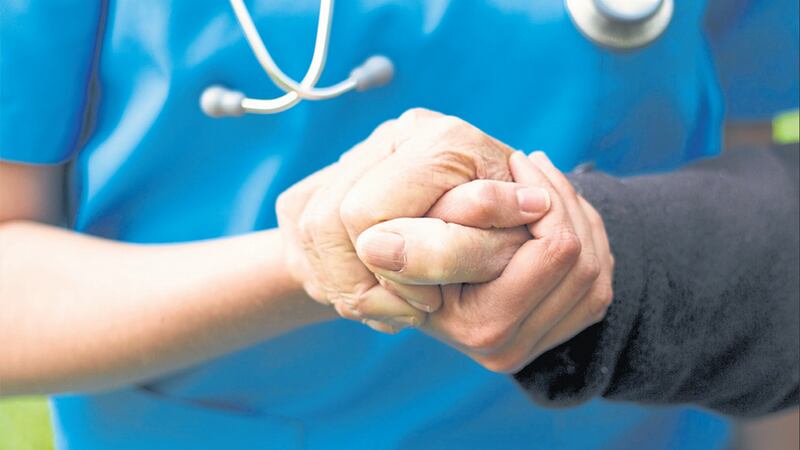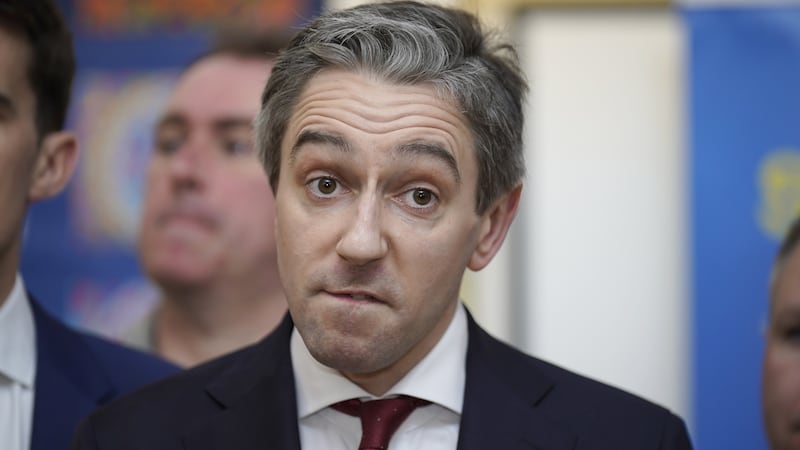My mum died last week. On the same day another friend lost her mother-in-law. Two weeks previously the father of another close friend died. And it’s a fair bet that many of you will have lost a loved one recently.
Globally, it is estimated that some 153,000 people die every day. Death is a workaholic; always busy harvesting souls.
I was once told: “You know you’re getting old when you get closer to the front of the church at funerals.”
At the Mass for my mum, my brother, sister and I were in the first pew. It’s a lonely place to be.
Her death is too recent for me to be able to comprehend fully the enormity of it. I just know I miss her lots. A meditation on existentialism will have to wait for another day.
Human beings have been trying to grapple with the mystery of death and its consequences since the beginning of time.
Philosophers and theologians have had a go. Poets and musicians too have explored the interface between life and death. But until we make the journey ourselves, we will never really know.
As a child I was always embarrassed when the story of doubting Thomas was read at Mass. “Unless I see the nail marks in his hands and put my finger where the nails were, and put my hand into his side, I will not believe.”
The older I get, the more I recognise that his refusal to believe was a natural human response.
We like our knowledge to be evidence based, and there are just not enough hard facts about the hereafter to say with certainty what lies beyond.
Faith, for those who have it, fills the gap.
My late father had it, and my mother too. He talked with pride of the confraternities in his native Limerick, and regretted their passing. My mum wanted to be buried wearing a blue ribbon that marked her out as one of the Children of Mary. The cheap tin medal was so precious to her that we found it in her jewellery box.
Before she died she received the last rites (a much more satisfying term than its post Vatican II alternative). By then she had lost her capacity to speak, and I don’t know how much she was able to comprehend. But I hope it brought her comfort.
I am more certain about the impact of others who ministered to her.
She was first taken ill in June, and treated at home and in Lurgan’s day hospital.
A ‘re-ablement’ team visited her four times a day to help get her back on her feet. Her GPs checked on her progress. Physiotherapists patiently worked to improve her stability. Ambulance men came twice, once after a fall at home, and once to bring her to hospital. They were amazing.
Nurses took blood, sampled urine, checked and re-checked blood pressure. Support staff kept her clean and made her comfortable; young doctors tried to find out what was going wrong and how to treat it.
She was X-rayed, scanned, and examined by people trained in the mysteries of modern medicine.
Many of you will have seen similar levels of support for relatives and friends – perhaps you will have experienced it yourself. Today we expect the health and social care service will have systems, processes and treatments in place to deal with our needs.
What I was unprepared for was the depth of compassion shown to her by people doing a tough job in an area where the demand on their services outstrips the resources available. You expect family to step up to the plate, and they did. But strangers?
I witnessed countless acts of love from those who cared for her – women and men who had no blood ties to motivate them, and who could have done their job effectively but clinically and dispassionately.
Like doubting Thomas, I wouldn’t have believed it if I hadn’t witnessed it with my own eyes.
I should have known better of course. My mother lived her life by countless kindnesses – a fact brought home to me by the words of many at her wake. But there are none so blind as those who will not see.
In a real sense that is a metaphor too for our society. If collectively we were more aware of the kindness of strangers, we might find it easier to create the type of society we want for ourselves and our children.








